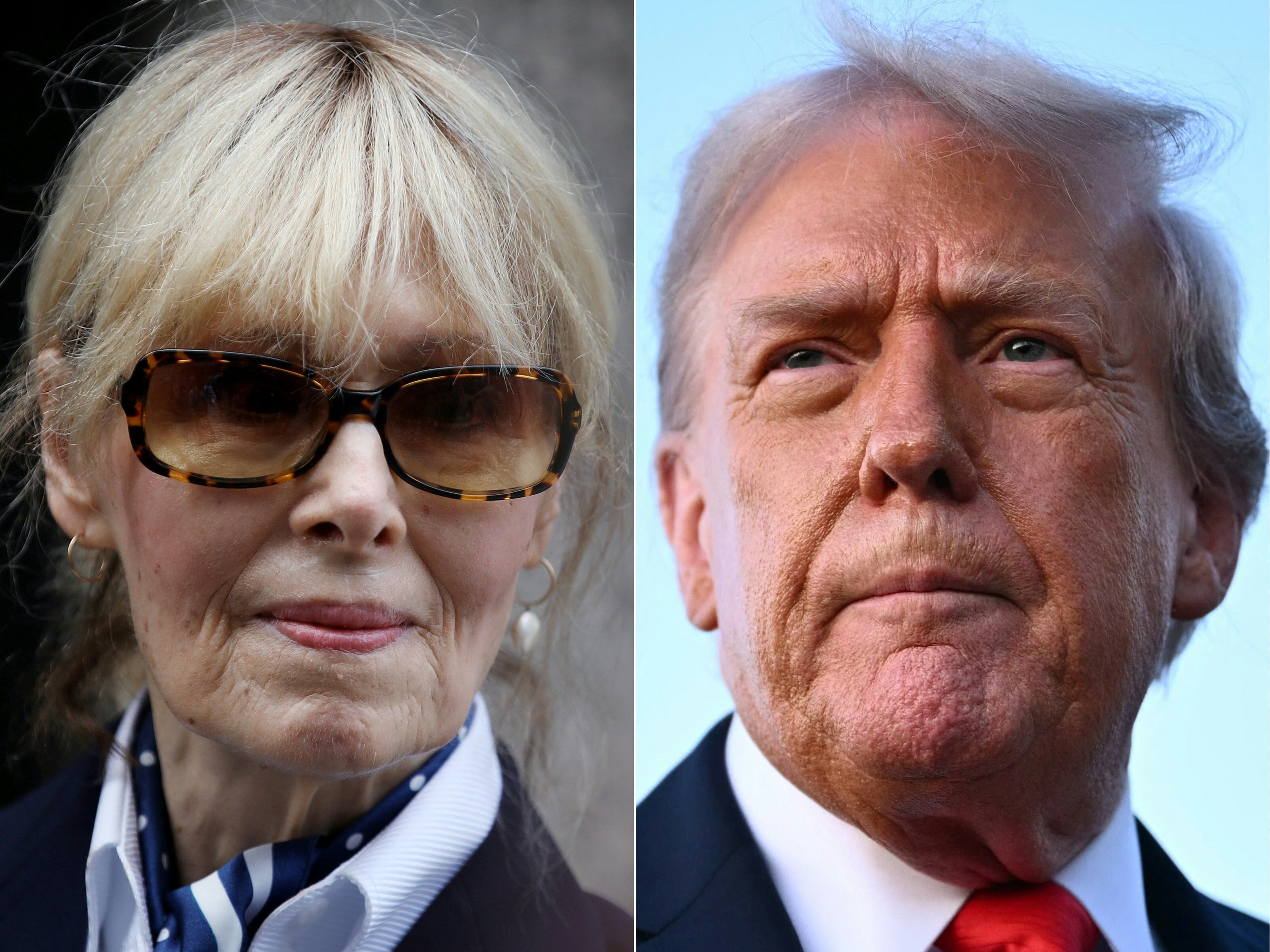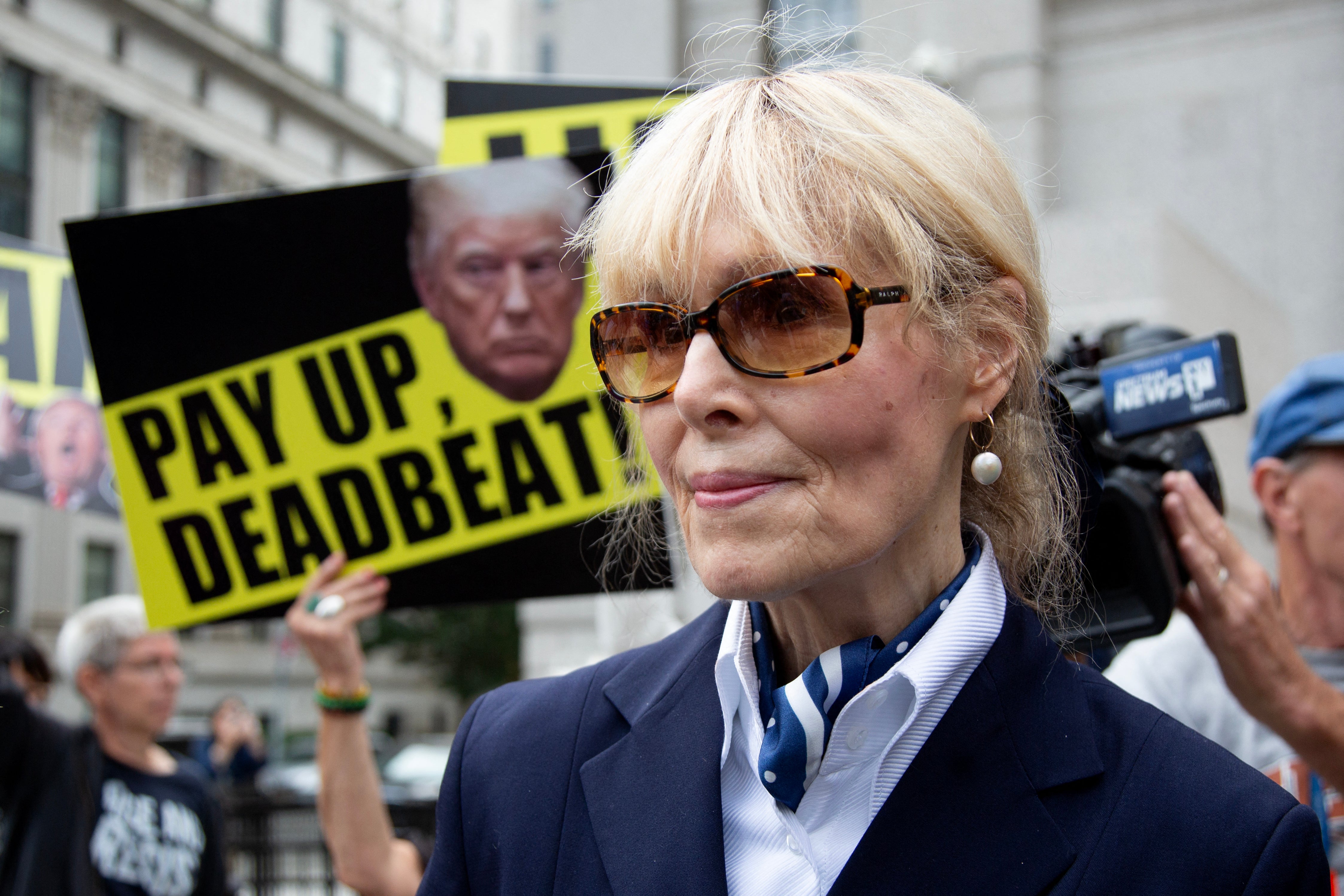A federal appeals court in New York has upheld a jury’s $83.3 million judgement against Donald Trump for defaming E Jean Carroll after the president claimed he was immune from liability.
Trump “failed to identify any grounds” to reconsider the case on the grounds of presidential immunity, and the jury’s verdict was “fair and reasonable” given the “unique and egregious facts of this case,” the appellate judges said Monday.
Last year, a unanimous jury returned a verdict awarding $83.3 million in damages to the former Elle magazine writer for the president’s defamatory statements during his first term in office and in the years that followed. A separate jury had already awarded Carroll $5 million in 2022 after finding Trump liable for sexual abuse.
Trump was accused of repeatedly defaming Carroll by claiming he had never met her, labelling her a liar, and denying that he had sexually assaulted her in a New York City department store in the 1990s.
After a jury found him liable for sexual abuse and defamation in 2023, a different jury in a second case awarded Carroll more than $18 million in compensatory damages in addition to $65 million in punitive damages.

“Trump acted with, at a minimum, reckless disregard for the truth” by calling Carroll a liar and stating that she is not his “type,” the judge said Monday.
“After Trump released his statements, which were viewed by between 85.8 to 104 million people, Carroll was instantly and continuously attacked on Twitter and Facebook and in emails,” they added. “She received thousands of such attacks, including hundreds of death threats.”
During the trial, more than a dozen such messages were entered into evidence, and Carroll testified “about her continued fear for her safety and her inability to afford stronger personal security measures” as well as “the impact of Trump’s statements on Carroll’s reputation and career,” the judges wrote.

In that trial, Trump was barred from disputing that the facts of that case, including whether he sexually abused Carroll, leaving the trial to focus exclusively on damages owed to her.
A different panel of New York appellate judges in December refused to overturn the $5 million verdict after the president argued that the trial judge should not have let jurors hear testimony from two other women who accused him of sexual misconduct.
Trump’s lawyers also argued that jurors should not have listened to his comments on the so-called Access Hollywood tape, on which the president is heard bragging about grabbing women’s genitals.
Trump is expected to ask the Supreme Court to intervene in that case.
In his appeal of the second defamation verdict, Trump’s attorneys argued that he should be shielded from liability under the Supreme Court’s landmark ruling on presidential immunity, which shields the president from prosecution for official acts in office.
Trump insists that he has never met Carroll and has repeatedly branded her a liar and the case a “hoax” against him — claims at the center of Carroll’s defamation lawsuits.
His legal team had argued that the initial statements denying Carroll’s allegations were “issued through official White House channels” and “fall squarely within the outer perimeter” of the president’s official duties.
But Carroll’s attorneys had argued to the appellate court that Trump’s statements and actions involved “personal conduct” that have nothing to do with the White House.
Trump “was not speaking here about a governmental policy or a function of his responsibilities,” they argued. “He was defaming Carroll because of her revelation that many years before he assumed office, he sexually assaulted her. The defamation at issue concerned quintessentially ‘personal’ conduct.’”
The Carroll verdicts added to a tidal wave of litigation against the president after leaving the White House and campaigning for a second term, including criminal convictions for falsifying business records and a massive fraud judgment putting him on the hook for nearly half a billion dollars.
He avoided any consequences after his conviction in the criminal case in Manhattan, and he has successfully appealed a part of the fraud judgment.



